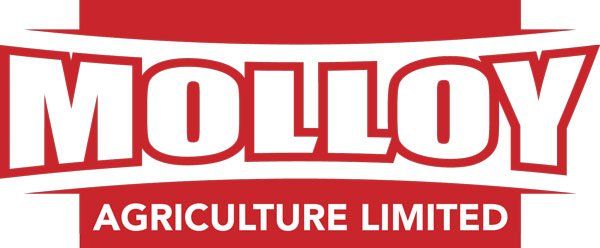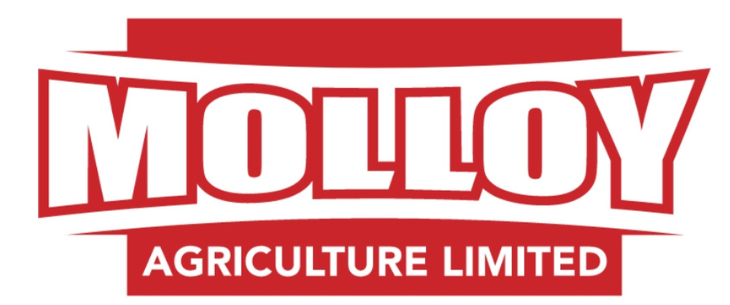By Molloy Agriculture
•
August 30, 2018
For father-in-law and son-in-law team Rod Clibborn and Dale Palmer, modernising their Lyndhurst mixed cropping farm from its traditional roots and converting it from borderdyke irrigation to spray irrigation was an investment in future generations. The family’s operation is one of the earliest clients of Molloys when it started 30 years ago. The 355-hectare property is run as a mixed cropping farm with crop as its main income source with cereals and small seeds grown. Ryegrass is an important crop grown due to its versatility and for the stock operation. Fodder beet and Kale are grown for the 1500 cows that are wintered. There are also up to 6000 store lambs depending on crop rotation. "This was a very traditional farm and like most farms around here, we have tweaked it a little bit over the last couple of years." "We've had to intensify it, Sus & I need to justify why we're here.” They carry out the work between the two of them, assisted by a permanent casual staff member, with contractors playing an important role in managing the workload. Dale's wife Sus, Rod's daughter, takes care of the administration side of the business. Rod's father was placed on the property as a returned serviceman from World War II through the Government’s rehabilitation scheme. In the beginning he ran straight sheep stock. The farm is where Rod grew up and once he took over the reins he introduced cropping. Then, it was 134 hectares which has since been added to four or five times. Cropping was a way to increase the bottom line, growing wheat, barley and peas, he said. Cropping had its ups and downs and required a high capital input, such as tractors and combine harvesters. It was also vulnerable to hail storms and other climatic disasters. “Crops are so exposed to the elements.” Dale and Sus met while living in Southland, Dale in the banking industry and Sus a teacher. “We got involved and put our savings into it,” purchasing the next door dryland block." “That’s how we started into it.” The couple decided to move to the farm “for a couple of years” but never left. They now have three children – Jack, 5, Sam, 4, and Ali, 2. Until a few years ago the farm was mainly border dyke irrigation with a dryland block. Wanting to modernise and intensify the operation they have invested in spray irrigation, installing a centre pivot and building a pond, enabling them to fully utilise their water allocation and irrigate an extra 100 hectares of dryland. Soon 250 hectares of the property will be under spray irrigation using the Ashburton-Lyndhurst scheme. While spray Irrigation has been used in the area for at least 30 years, recent times have seen a big shift from borderdyke, with efficiencies constantly improving. Dale said he was looking forward to the management efficiencies spray irrigation would bring. “With borderdyke irrigation you are reliant on rainfall to get fertiliser in.” “It’s going to be great to get to big flat paddocks and use machinery more efficiently. We’ll be able to grow more small seeds like clover … than what we’re doing now.” They plan to reduce cattle numbers and increase store lambs. The men agree they are on a good patch of land. “We’ve got good enough soils to produce good quality crops. When you rotate it with the stock it does work very well here.” Rod agrees, saying it lent itself well to dairy grazing in the winter with its lighter soils. “The soil type’s pretty versatile. You can grow good grass and grow good crops. “The crucial thing is water of course. You can’t farm without irrigation on this soil type.” The investment in converting the farm was a big ask, but the gains were great, Dale said. “We’ve gained 16 to 20 hectares with irrigation. That’s a lot of ground gained for our size operation. “We’re quite excited about what’s coming up in the next few years.” The men have seen big changes in the area, most visibly noticeable are fewer trees. There are not many ewe flocks left as most are grazing lambs or offering dairy support. “Those of us who didn’t convert to dairy, had to intensify our production to justify the land here,” Dale said. They plan to re-plant the property and are committed to environmental plans and nutrient budgeting. “We are guardians of the land so need to be looking after it.” They want to leave it in good stead for the next generation if they should choose to stay on the farm. “We don’t expect our kids to go farming but we’ve got to start putting things in place that are sustainable and profitable so they’ve got a chance to, just like we’ve had the chance.”




Agricomments
Pip & Dean Pye
Clibborn Farms